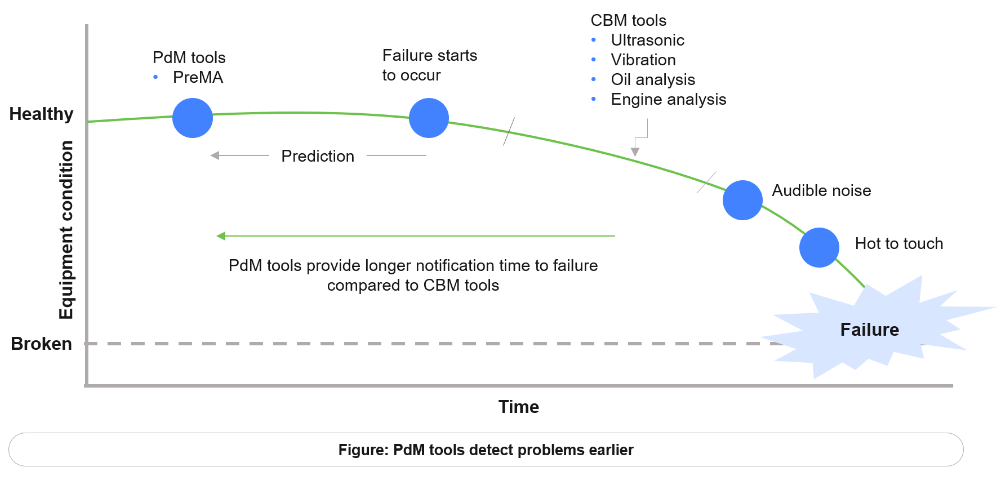The chemical and oil and gas industries are facing financial, operational and market challenges due to uncertain global conditions. Some factors affecting profitability are unplanned downtime of critical assets, optimized asset performance and process efficiency improvement. The performance of critical assets plays an important role in a plant’s efficiency, revenue, profitability and ROI. As a result, plants have a critical need for advanced predictability about unusual asset behavior.
Real-time data management systems act as data historians or processors of data from various sources, including industrial Internet of things (IIoT) connected assets. The dramatic increase in additional data points has added stress to data-processing systems, even as most companies continue to rely on manual tools to monitor and analyze performance. A modern, automated approach to analyze these data sets can make data processing, and industrial plants, considerably more effective.
Data Models Can Predict Asset Failure
Many of the challenges industries face result from plants using conventional methods and systems to drive asset performance and reliability. Plant data that has been analyzed manually cannot proactively address asset breakdowns or plant shutdowns, nor can it provide adequate time for plant managers to prepare for and/or mitigate the issues.
By comparison, predictive maintenance using machine learning (ML) and artificial intelligence (AI) can provide a more-precise approach to reduce unplanned downtime, decrease maintenance costs and reduce EH&S risks.
Two types of ML models can improve maintenance and failure predictability. An anomaly detection model detects the abnormal behavior of equipment based on the operational learnings provided from historical data. For any abnormal behavior observed, an anomaly is generated triggering a notification to the concerned personnel to take the required corrective action. The failure prediction model or remaining useful life (RUL) prediction is based on historical failure events. This model will forecast the duration up to which the respective equipment can run without failure/breakdown.
Advanced Analytics Predict Problems Earlier
Advanced analytics can further optimize asset performance and processes through predictive maintenance (PdM). This allows operations, maintenance, quality and engineering service decision-makers to predict when an asset needs care. Data gathered from installed field devices, control systems, IIoT, data historians and enterprise asset management systems pass through the analytics models to detect the anomalies and predict asset and process failures, identify the root causes of failures and prevent unplanned downtimes.

According to McKinsey, advanced analytics, if applied properly, can yield returns as high as 30-50 times the investment within a few months of implementation. Moreover, they can positively transform the organizations and fundamental operating models of oil and gas production systems.
Advanced analytics are powered by ML, which uses statistical methods and computing power to spot patterns among hundreds of variables in continual conditions. The patterns are used to build algorithms that analyze the parameters critical to production, quality and efficiency and alert operators for resolution before the issue becomes critical or causes a failure.
Advanced analytics enable industries to improve production, profitability and margins by leveraging data from several underlying systems – employing ML and AI for smooth operations and maintenance. Critical advanced analytics components include seamless integration of various sources and systems to retrieve sensor data (history and RT), maintenance history, equipment design data, fluid properties, thresholds, alarm history and interlock limits.
Analytics can provide users the required experience, expertise and history of the plant and processes to connect, identify, cleanse, model, predict and monitor various critical assets and processes. By sharing insights along with the underlying data sets and calculations for decision making, asset management improves and so does the operational efficiency of the plant.
Industry 4.0 Improves Decision Making
For midstream oil and gas companies, predictive maintenance has many advantages over reactive or planned maintenance, including increased equipment life, optimized equipment operations, less equipment downtime, and less staff time wasted. These solutions can be developed to address the specific requirements of the customer’s framework by using IR4.0 technologies. These technologies gather plant network data and aggregate it through IIoT platforms. The data platforms can be used to create solutions for many use cases, including asset-predictive maintenance. Data platforms can be realized on cloud platforms, open-source and on-premises. AI solutions should run on live data and include historical data, contextual data and expert input.
Wipro has delivered projects for predictive maintenance models using AI/ML for several plants involving hundreds of assets like compressors, pumps, heat exchangers, etc. The data can be analyzed using spreadsheets, a data historian, or reliability tools, but the required effort and time are excessive, and the results are complex and not real-time. An advanced analytics solution enables process, maintenance and inspection engineers to leverage data to predict failures and take the necessary steps to avoid unplanned shutdowns.
Industry :

Ramesh Srinivasan
Managing Consultant, Energy – Domain and Consulting, Wipro Limited
Ramesh has 17 years of experience in downstream oil and gas. His focus has been on the implementation and integration of manufacturing enterprise system applications for refineries, petrochemicals, liquid natural gas and lubricants plants. Ramesh co-authored “MESA Process Industries Guidebook: Adopting Integrated Manufacturing Operations Management (IMOM) in Oil and Gas & Petrochemical Industries, Leveraging Digital Technologies and Industry 4.0 Framework.”

Ashish Pathak
Principal Consultant, Oil and Gas – Domain and Consulting, Wipro Limited
Ashish has 18 years of experience in downstream oil and gas involving experience in process operations, process control, alarm management, process simulation, predictive maintenance using AI/ML and project management. He has led the successful delivery of several projects for process simulation (OTS/MPDS), distributed control system (DCS/SIS) and predictive maintenance using AI/ML. Ashish is a certified Project Management Professional.